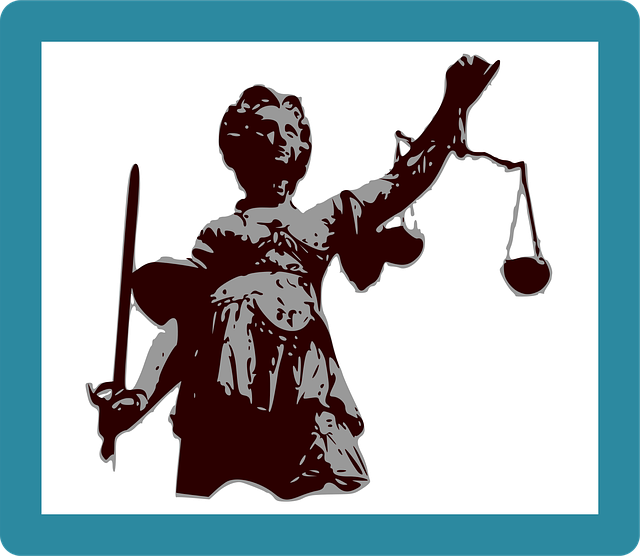Whistleblower protection laws like the WPA and CSR provisions are crucial for safeguarding individuals who expose illegal activities, particularly securities regulation breaches. These laws offer a safe harbor, protecting whistleblowers from retaliation and encouraging them to report fraud, manipulation, and other financial misconduct. Common Securities Regulation breaches, ranging from misreporting to insider trading, serve as the legal basis for whistleblower lawsuits, which can lead to severe penalties for offenders. The meticulous process involves complaint filing with regulatory bodies like the SEC, investigation, potential settlement or court judgment, and shielding whistleblowers from retaliation. These protections foster integrity, accountability, and financial awards, while notable cases like Stryker v. Nyse (2017) and SEC v. Enron (2001) demonstrate their role in exposing and preventing CSR breaches in litigation.
“Uncovering wrongdoings within corporations is a powerful act, often performed by whistleblowers who face significant risks. This article explores whistleblower protection lawsuits, a crucial legal mechanism empowering individuals to expose fraud and corruption while safeguarding their interests. We delve into the intricate web of Common Securities Regulation Breaches and their role in driving litigation. From understanding the legal framework to the filing process and notable case studies, this guide illuminates the impact and protections offered by whistleblower protection laws.”
- Understanding Whistleblower Protection Laws: A Legal Framework
- Common Securities Regulation Breaches and Their Role in Lawsuits
- The Process of Filing a Whistleblower Protection Lawsuit
- Key Protections and Benefits for Whistleblowers
- Case Studies: Notable Whistleblower Protection Lawsuits and Outcomes
Understanding Whistleblower Protection Laws: A Legal Framework

Whistleblower protection laws are a crucial legal framework designed to safeguard individuals who expose illegal or unethical activities within their organizations. These laws provide a safe harbor for whistleblowers, offering them legal protections and opportunities to come forward with vital information. In the context of securities regulation breaches, these protections are especially significant, as they encourage employees to report fraud, manipulation, and other financial misconduct without fear of retaliation.
The U.S., for instance, has several federal laws, such as the Whistleblower Protection Act (WPA) and various provisions under the Common Securities Regulation (CSR), which protect whistleblowers. The WPA ensures that federal employees cannot be retaliated against for reporting illegal activities, while CSR regulations apply across the country, offering a robust legal shield for those who expose securities fraud. With an unprecedented track record of successful whistleblower protection lawsuits, general criminal defense attorneys play a pivotal role in navigating these laws and advocating for whistleblowers’ rights.
Common Securities Regulation Breaches and Their Role in Lawsuits

Whistleblower protection lawsuits often center around violations of common securities regulations, which play a pivotal role in legal proceedings. These breaches encompass a wide range of illegal activities, from financial misreporting to insider trading and fraud. When whistleblowers come forward with evidence of such misconduct, they trigger investigations that can lead to significant legal consequences for the offending entities.
An unprecedented track record of common securities regulation breaches can create a strong case for whistleblower litigation. By exposing these violations at any stage of the investigative and enforcement process, whistleblowers not only help avoid indictment but also play a crucial role in ensuring accountability and potentially recovering losses for affected parties. This proactive approach not only safeguards public interest but also serves as a powerful deterrent against future misconduct.
The Process of Filing a Whistleblower Protection Lawsuit

When an individual decides to take legal action as a whistleblower, they initiate a careful and complex process. This involves filing a lawsuit under specific regulations designed to protect them from retaliation when reporting common securities regulation breaches. The first step is to compile evidence, which can include financial records, internal communications, or any data that supports the claim of wrongdoing. Once prepared, the whistleblower files a complaint with the appropriate regulatory authority, such as the Securities and Exchange Commission (SEC), detailing the violation and its impact.
The lawsuit progresses through all stages of the investigative and enforcement process. If the regulatory body agrees there is merit to the claim, they may pursue legal action, potentially resulting in a settlement or court judgment. Notably, successful whistleblowers can expect complete dismissal of all charges against them, ensuring their protection from any legal repercussions for coming forward.
Key Protections and Benefits for Whistleblowers

Whistleblower protection laws offer crucial safeguards for individuals who expose illegal activities within their respective businesses or corporate clients. These protections are designed to encourage employees and insiders to come forward with information about fraud, corruption, and other misconduct, especially in cases of white-collar and economic crimes. By doing so, whistleblowers play a vital role in upholding integrity and accountability in the business world.
Key benefits include protection from retaliation, ensuring that individuals can report violations without fear of losing their jobs or facing adverse consequences. This fosters an environment where employees feel empowered to uncover and expose securities regulation breaches in litigation, contributing to more robust legal outcomes. The laws also provide a platform for whistleblowers to receive awards and compensation, which can help them financially during what is often a challenging process. These protections are essential tools in the fight against corporate misconduct, allowing both corporate and individual clients to hold accountable those who engage in fraud and other illegal activities.
Case Studies: Notable Whistleblower Protection Lawsuits and Outcomes

Whistleblower protection lawsuits have been instrumental in exposing and deterring Common Securities Regulation (CSR) breaches, leading to significant outcomes that reverberate across various sectors. Notable cases like Stryker v. Nyse (2017) showcased how whistleblowers can hold powerful corporations accountable for fraudulent practices, resulting in substantial penalties and changes in corporate governance. These high-stakes cases not only bring justice but also inspire other potential whistleblowers to come forward.
In the financial sector, for instance, whistleblowers have played a crucial role in revealing fraud schemes that impacted not just respective businesses but also philanthropic and political communities. Outcomes like those seen in SEC v. Enron (2001) led to enhanced regulatory oversight and improved transparency, underscoring the vital role of whistleblower protection in fostering integrity within complex financial systems. Such cases demonstrate that while CSR breaches can be elaborate and challenging to navigate, they are not beyond scrutiny or punishment.
Whistleblower Protection Lawsuits play a pivotal role in upholding integrity within organizations, especially in cases of common Securities Regulation Breaches. By understanding the legal framework and navigating the filing process, individuals can access key protections and benefits while contributing significantly to organizational accountability. Notable case studies demonstrate the profound impact these lawsuits can have, revolutionizing corporate practices and serving as a testament to the power of transparency.






